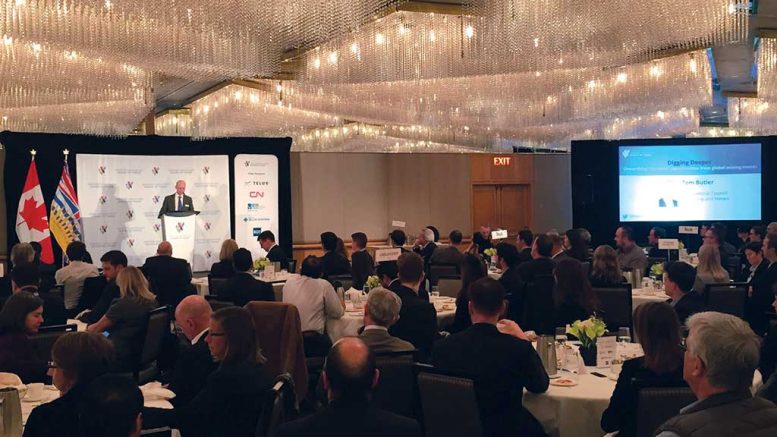VANCOUVER — On Dec. 6, The Northern Miner sat down for an interview with Tom Butler, CEO of the U.K.-based International Council of Mining and Metals (ICMM), to discuss climate change politics and other prominent themes for miners on the international stage in 2018. Butler became CEO of ICMM in July 2015. Before that, he spent 18 years with the World Bank’s International Finance Corporation in its infrastructure and natural resource teams, with an emphasis on mining and power projects in Africa.
The Northern Miner: How is the mining industry is perceived globally today?
Tom Butler: There’s a trust gap, and the question is: How do we close it?
The mining industry isn’t doing well in many countries. You see that in the loss of social license where governments feel they have political room to take actions because the industry doesn’t have the support of local populations.
So there’s a lot of work to be done when it comes to communicating the positive impacts of mining and getting local populations behind that message.
That’s especially true in developing countries where the industry can be a real agent of change when it comes to alleviating poverty and bringing resources into an economy.

“We believe some of Canada’s major companies are really emerging as leaders in the climate change discussion.”
Tom Butler, CEO
International Council of Mining and Metals
At the same time, we hear a lot about climate change and the expectation that industry should do its part. I think the oil and gas industry has been hit harder by that message because there’s an awareness that mining is going to supply the raw materials needed to “decarbonize” the world. And it’s not just minerals like lithium and cobalt, but also resources like iron ore and metallurgical coal. We believe some of Canada’s major companies are really emerging as leaders in the climate change discussion.
TNM: What challenges do mining companies face on the international stage in 2018?
TB: There are really three key issues you hear a lot about right now.
First, society is expecting the private sector to add a lot more value to stakeholders, and not just shareholders. That means we need to deliver on sustainable development goals, address climate change and deal with inequality.
Second, there’s a lot of attention paid to resource scarcity in the broader sense, and that goes beyond scarcity of minerals. It includes things like water, air and human resources. That’s leading to growing pressure around issues like water management at mine sites.
Third, there are now expectations for much greater accountability and transparency. That means citizens are getting much more involved in terms of where they put their money. They want to know about their investments, and there’s much greater demand for environmental, social and governance criteria to be published and disclosed.
TNM: It can be difficult to quantify the near-term financial benefits of investing in items like green energy and “decarbonizing.” How does that affect stakeholders, shareholders and capital markets?
TB: We believe there’s more alignment between shareholders and stakeholders than many people recognize. The companies realize that the major investors — including pension funds — are watching what’s happening with these issues.
I mentioned that growing realization in capital markets that people are very interested in where their money is being invested.
A growing number of funds are using governance, environmental and social criteria in judging investments. Certainly climate footprint is an element investors consider when making decisions.
If we’re talking about social license to operate, and delivering on citizen expectations, these are things that can create a number of issues in the final analysis.
If you’re on the wrong side of the reputation debate you run the risk of having people not wanting to invest, which could impact the share price.
Ultimately, there’s no value for shareholders in shutting down, or losing, a valuable project due to a lack of local support.
TNM: There’s also a segment out there that’s completely opposed to mining and natural resource exploitation, generally. How do you deal with that segment — for example, Apple saying it intends to make iPhones out of completely recycled material in order to “stop mining the planet”?
TB: You can sit down at the table with everyone. I think that movement is still very much on the fringe.
The fact is if we’re going decarbonize economies and deliver the material society needs, particularly as people move into the middle class in places like China, there’s going to have to be a huge amount of commodities supplied by the mining industry. You’re not going to get that out of purely recycled material.
But that really highlights the importance of communication and leveraging platforms like social media to really get our message out there. We need to continue to underline the role mining will play in supplying the technology sector. It’s important for society to understand that mineral extraction is really part of the solution to many of these challenges.


Be the first to comment on "ICMM’s Butler: Mining an ‘agent of change when it comes to alleviating poverty’"